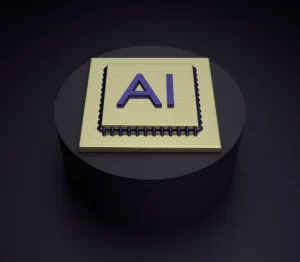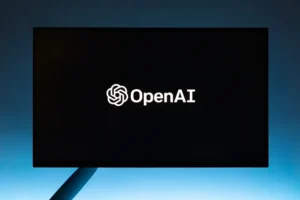As a technological optimist, I believe technology and education can solve all world problems. Let’s take a look at what AI experts are worried about in the long run.
Geoffrey Hinton is a well-known computer scientist and a pioneer in the field of artificial intelligence, especially in deep learning. He is also known as the “godfather” of AI.
Geoffrey Hinton and Stephen King are not the only ones scared of artificial intelligence. Elon Musk also said at a conference that “AI scares the hell out of me, it’s capable of extensively more than almost anyone knows, and the rate of advancement is exponential.”
What Are the Risks of Artificial Intelligence?
Other researchers have expressed concern about the risks that these AI systems pose in the short, medium, and long term.
People may wrongly trust more compelling and convincing disinformation, including false information presented convincingly by an AI, as the first danger.
Hoaxers and criminals may make phony phone calls that imitate the voice of a relative who claims to be in danger and urgently needs money.
Pope Francis was recently the subject of a widely circulated bogus computer-generated photograph. An image of the Pope wearing a stylish white puffer coat went viral on social media, with many people mistaking the fake photo for an authentic snap.
A simple Google search “AI Dangers” will bring up the following four questions on the first page.
What are the dangers of AI?
What is the biggest danger of AI?
What are the dangers and benefits of artificial intelligence?
Is AI helping or hurting society?
In this article, I will share the most common dangers of artificial intelligence based on my observations in the past few months. Let’s answer the most basic question.
Is artificial intelligence a potential danger to humankind?
Yes and no, It all depends on who is using it.
Here are the top 6 potential dangers of artificial intelligence; let’s dive in.
In this article, I will share the most common dangers of artificial intelligence based on my observations in the past few months. Let’s answer the most basic question.
Is artificial intelligence a potential danger to humankind?
Yes and no, It all depends on who is using it.
Here are the top 6 potential dangers of artificial intelligence; let’s dive in.
Autonomous weapons
AI can pose risks when programmed to do something dangerous, such as autonomous weapons programmed to destroy.
It is even possible that a global autonomous weapons race will replace the nuclear arms race.
It brings with it enormous opportunities as well as unpredictable threats. Whoever becomes the leader in this domain will rule the world.
Aside from the possibility that autonomous weapons will develop a “mind of their own,” a more immediate concern is the dangers that autonomous weapons may pose to an individual or government that does not value human life.
Social manipulation
With its self-powered algorithms, social media is highly effective at target marketing.
AI can target individuals identified through algorithms and personal data and spread whatever information they want in whatever format they find most convincing — fact or fiction.
Undoubtedly, they have a good idea of who we are, what we like, and what we think.
Investigations are still ongoing to determine the fault of Cambridge Analytica, who used data from 50 million Facebook users.
Too little privacy
Our privacy is being eroded. When we later protect our privacy, however, these companies will use similar target groups, people who look very much like us.
And our data is resold in bulk, with an increasing need for more awareness about who receives it or how it is used.
Data is the lubricant for AI systems, and our privacy is always at risk.
Impact on the labor market
AI will put pressure on the labor market in the coming years.
The rapid advancement of artificial intelligence will result in smart systems becoming far more adept at specific tasks.
Smart AI systems will take over the recognition of patterns in massive amounts of data, the provision of specific insights, and the performance of cognitive tasks.
Professionals should keep a close eye on the advancement of artificial intelligence because systems are increasingly capable of looking, listening, speaking, analyzing, reading, and creating content.
As a result, there will almost certainly be people whose jobs are in jeopardy who will have to adapt quickly.
In short, professionals’ ability to adapt to a rapidly changing work environment is becoming increasingly important.
Professional realignment
Longer-term dangers include changes in the medical profession.
Some medical specialties, such as radiology, are likely to change dramatically as more of their work is automated.
Some academics are concerned that the widespread use of AI will lead to a loss of human knowledge and capacity over time.
Injuries and error
AI systems will occasionally be incorrect, resulting in patient injury or other healthcare issues.
If an AI system prescribes the wrong drug to a patient, fails to detect a tumor on a radiological scan, or assigns a hospital bed to one patient over another because it incorrectly predicted which patient would benefit more, the patient may suffer harm.
Of course, many injuries occur in the healthcare system today due to medical errors, even without the involvement of AI.
AI errors may differ from one another for at least two reasons.
i. Patients and providers may react differently to injuries caused by software than to injuries caused by human error.
ii. AI systems become more widely used, and an underlying problem in one AI system may become apparent in another.
Ethical implications
One of the most serious concerns about AI is its potential impact on ethics and morality.
As artificial intelligence systems become more powerful, there is concern that they will be used to manipulate information, invade privacy, or perpetuate biases.
Bias and Discrimination
AI systems are trained using massive amounts of data, and if that data is biased or reflects societal prejudices, the AI systems can inherit and perpetuate those biases.
This has the potential to result in discriminatory outcomes in areas such as hiring, lending, criminal justice, and other domains where AI systems are used.
The bottom line
To address these dangers, a multidisciplinary approach involving researchers, policymakers, and industry leaders is required.
Regulations, ethical guidelines, and transparency measures can all help to mitigate risks and ensure that AI technologies are developed and deployed responsibly and beneficially. I’ll conclude with the following quote.
What we want is some way of making sure that even if they’re smarter than us, they’re going to do things that are beneficial for us. — Hinton
Book recommendation: Superintelligence: Paths, Dangers, Strategies




